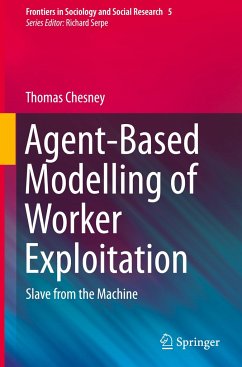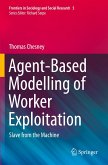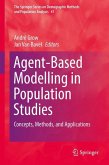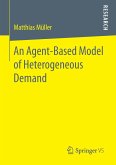This book illustrates the potential for computer simulation in the study of modern slavery and worker abuse, and by extension in all social issues. It lays out a philosophy of how agent-based modelling can be used in the social sciences. In addressing modern slavery, Chesney considers precarious work that is vulnerable to abuse, like sweat-shop labour and prostitution, and shows how agent modelling can be used to study, understand and fight abuse in these areas. He explores the philosophy, application and practice of agent modelling through the popular and free software NetLogo.
This topical book is grounded in the technology needed to address the messy, chaotic, real world problems that humanity faces-in this case the serious problem of abuse at work-but equally in the social sciences which are needed to avoid the unintended consequences inherent to human responses. It includes a short but extensive NetLogo guide which readers can use to quickly learn this software and goon to develop complex models. This is an important book for students and researchers of computational social science and others interested in agent-based modelling.
This topical book is grounded in the technology needed to address the messy, chaotic, real world problems that humanity faces-in this case the serious problem of abuse at work-but equally in the social sciences which are needed to avoid the unintended consequences inherent to human responses. It includes a short but extensive NetLogo guide which readers can use to quickly learn this software and goon to develop complex models. This is an important book for students and researchers of computational social science and others interested in agent-based modelling.








